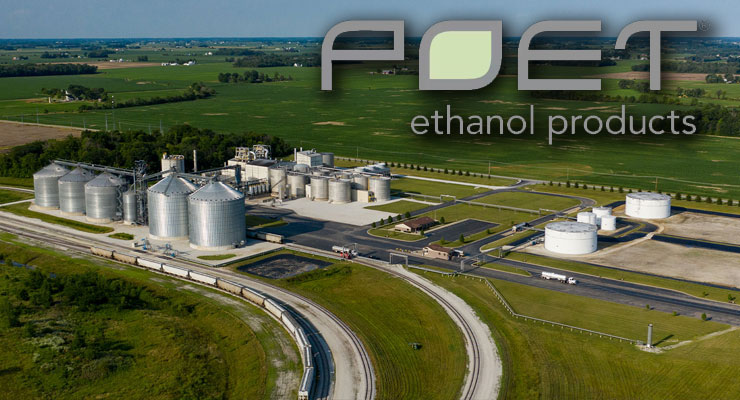
How POET is Fueling Innovation and Leading the Ethanol Industry
In the realm of renewable energy, biofuels represent an essential transition towards more sustainable fuel sources, with ethanol being one of the most prominent biofuels in the market. At the vanguard of ethanol production is POET, LLC, the largest ethanol producer globally, which has consistently shown a remarkable capacity for innovation and market leadership.
POET, LLC began its journey in 1987, originally named Broin Companies, after founder Jeff Broin purchased a foreclosed ethanol plant in Scotland, South Dakota, with his family. From these humble beginnings, POET has grown exponentially, with its headquarters situated in Sioux Falls, South Dakota. This location not only situates POET at the heart of America's agricultural belt but also symbolizes the company's commitment to fostering rural economies and harnessing the heartland's potential to power a renewable energy future.
Today, POET is a behemoth in the biofuel industry. The company operates 28 plants across 7 states in the Midwest, with a combined production capacity of nearly 2 billion gallons of ethanol, 10 billion pounds of distillers grains, and 600 million pounds of corn oil annually. This massive output is made possible by the approximately 2,000 employees who work tirelessly to ensure that POET maintains its reputation for efficiency and innovation. The company's operations are not just confined to ethanol production; they extend into logistics, marketing, and agricultural aspects, forming an integrated business model that optimizes the value chain from corn to biofuels.
At the helm of POET is Jeff Broin, who serves as the CEO. With over three decades of experience in the ethanol industry, Broin's leadership has been instrumental in guiding POET through numerous phases of growth and market challenges. His vision of harnessing the potential of biofuels to revolutionize energy consumption patterns worldwide has been a driving force behind the company's strategy and innovation.
Market Share
POET's dominance in the market is underscored by its substantial market share. It produces nearly 10% of the total ethanol in the United States, making it a central player in a country that is one of the world's largest producers of ethanol. POET's market share signifies not only its size but also its influence on the pricing, production standards, and sustainability practices within the biofuels sector.
The customer base of POET is as diverse as the applications of ethanol. It serves various stakeholders, including oil refiners, gasoline blenders, animal feed customers, and industrial users of bio-based products. The company's ethanol is blended into gasoline to reduce emissions and improve octane, while its co-products, like distillers grains, are used as high-protein animal feed. POET's clients are spread globally, underlining the international demand for more environmentally friendly fuel options.
A Special Company
What sets POET apart from other players in the biofuel industry is a combination of innovation, sustainability, and economic impact. Its business model exemplifies a circular economy, as it utilizes every part of the corn kernel for producing various products, thereby minimizing waste. POET has made substantial investments in research and development to improve the efficiency of ethanol production and reduce its environmental footprint. It's this commitment to innovation that has led to the company's proprietary BPX process, which uses enzymes and yeast in a raw starch hydrolysis that saves energy and reduces the production of greenhouse gases.
Moreover, POET is special because of its role in advancing the cause of biofuels at the policy level. The company is a vocal advocate for the Renewable Fuel Standard (RFS) and other legislations that support the growth of biofuels. Its leadership understands the intersection of energy, agriculture, and environment, working closely with stakeholders to promote policies that would benefit all three sectors.
Sustainability is at the core of POET's operations. They engage in continuous efforts to lower the carbon intensity of ethanol production, knowing that biofuels are an essential step towards achieving long-term climate goals. POET's production process consumes less water and energy than traditional gasoline production, and the company is always exploring ways to further improve these metrics.
Lastly, POET's impact on rural economies cannot be overstated. By providing a market for corn and high-quality jobs in rural areas, the company helps sustain local communities. This synergy between industry and agriculture fosters a resilient economic structure that benefits the regional and national economy.
In sum, POET, LLC stands as a colossus in the biofuel landscape, not merely because of its size but due to its innovation, sustainability efforts, and socio-economic contributions. From its inception as a family-owned plant to becoming a world leader in ethanol production, POET has demonstrated the potential of renewable energy to drive change. As the world increasingly looks towards greener alternatives to fossil fuels, companies like POET are not only providing the necessary technologies and products but leading the way for others to follow.

0 Comments